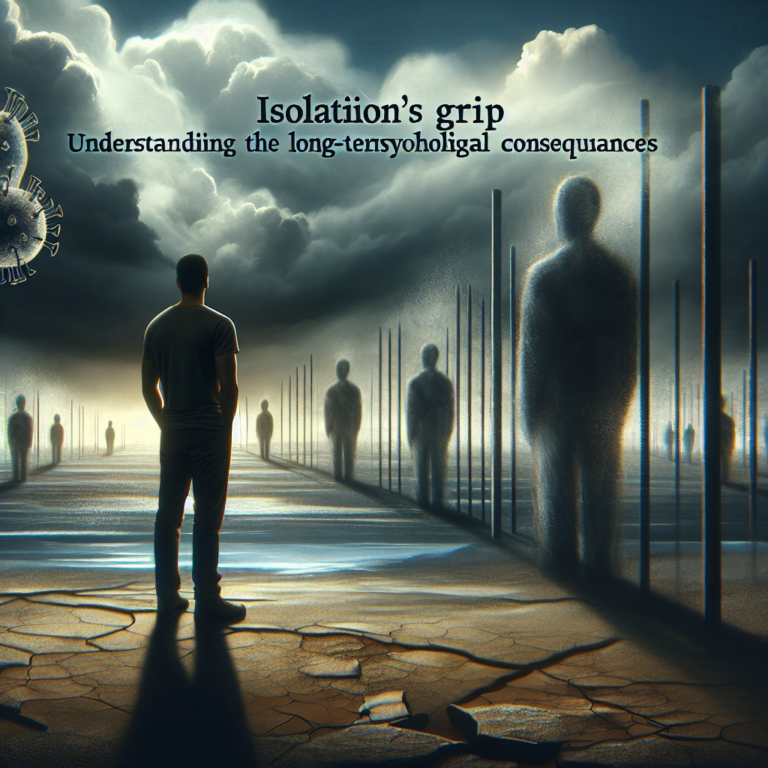
psyforu
The Ultimate Roadmap of Learning: Understanding Cognitive Development Stages in Children
Introduction
The path to understanding how children learn is one of the most captivating journeys in child development. Not only does it provide insight into how young minds process the world around them, but it also holds the keys to nurturing their potential. If you’ve ever wondered why your five-year-old can recite the alphabet but struggles to understand a simple story, you’re not alone. This exploration into The Roadmap of Learning: Understanding Cognitive Development Stages in Children will illuminate the various phases of cognitive growth, helping you to foster a supportive environment that champions understanding and curiosity.
Imagine a world where every child can thrive by understanding their unique cognitive development stage. That’s what this guide aims to achieve; by mapping out these stages, we can unlock the true potential of learning.
The Foundations of Cognitive Development
Cognitive development refers to the progression of thinking abilities—from basic concepts to abstract reasoning. Jean Piaget, a prominent psychologist, identified four distinct stages in children’s cognitive development: Sensorimotor, Preoperational, Concrete Operational, and Formal Operational.
1. Sensorimotor Stage (Birth to 2 Years)
During this initial stage, infants learn about the world primarily through their senses and motor activities. They explore their environment by touch, sight, sound, and movement. Key characteristics include:
- Object permanence: Understanding that objects continue to exist even when they cannot be seen.
- Trial and error: Learning through experimentation, like dropping a toy to see if it falls.
Case Study: Tommy’s Discovery
A 10-month-old named Tommy played with a bright red ball. Initially, he chuckled as it rolled away, absorbing the interaction. When the ball rolled under a couch, he began to search for it, demonstrating his budding understanding of object permanence.
Analysis: Tommy’s behavior underscores the importance of hands-on experiences during the sensorimotor stage. Engaging infants in exploratory play fosters their sensory and motor skills.
2. Preoperational Stage (2 to 7 Years)
In the preoperational stage, children begin to use language and develop memory and imagination. However, their thinking is still intuitive and egocentric, meaning they often struggle to see things from perspectives other than their own.
- Symbolic play: Children start to use symbols to represent objects (e.g., a cardboard box as a spaceship).
- Limited logical reasoning: Children may believe that if you change the shape of a substance (like flattening Play-Doh), the amount changes.
Case Study: Sarah’s Tea Party
Four-year-old Sarah organized a tea party with her stuffed animals, pouring imaginary tea and offering invisible cookies. When an adult asked if she would share with the toy dinosaur, Sarah insisted the dinosaur could talk and love cookies, showcasing her imaginative thinking.
Analysis: This case exemplifies the potential of symbolic play in enriching language development during the preoperational stage. Creating spaces for imaginative play enhances cognitive growth.
3. Concrete Operational Stage (7 to 11 Years)
Children in this stage begin to think logically about concrete events but still struggle with abstract concepts. They start to understand the concept of conservation—that quantities don’t change despite changes in shape or arrangement.
- Logical reasoning: Kids can categorize objects and understand sequential ordering.
- Concrete problem-solving: Children solve problems if they can visualize them.
Case Study: Jason’s Math Challenge
At age eight, Jason encountered a math problem involving balancing weights. Initially apprehensive, he used physical objects to visualize the problem, ultimately solving it by rearranging weights until balance was achieved.
Analysis: Jason’s reliance on concrete objects highlights the necessity of tangible experiences for reasoning. This stage can be maximized by incorporating hands-on activities that align with mathematical concepts.
4. Formal Operational Stage (11 Years and Up)
The formal operational stage is characterized by abstract thinking and the ability to formulate hypotheses. Adolescents can contemplate solutions to hypothetical problems and think about future possibilities.
- Abstract reasoning: Teens can manipulate ideas in their mind without needing physical representation.
- Deductive reasoning: They begin to understand logical sequences and construct arguments based on evidence.
Case Study: Emma’s Debate
Fifteen-year-old Emma joined a debate team, advocating for environmental policies. She analyzed various perspectives, built logical arguments, and understood counterpoints, showcasing her advanced cognitive skills.
Analysis: Emma’s experience demonstrates the transition to complex cognitive tasks, emphasizing the importance of discussion and argumentation in honing analytical skills during adolescence.
Cognitive Development Stages Table
| Stage | Age Range | Key Characteristics | Learning Activities |
|---|---|---|---|
| Sensorimotor | Birth to 2 Years | Object permanence, trial and error | Sensory play with toys, interactive games |
| Preoperational | 2 to 7 Years | Symbolic play, egocentric thinking | Role-playing, storytelling |
| Concrete Operational | 7 to 11 Years | Logical reasoning, conservation | Hands-on experiments, categorization games |
| Formal Operational | 11 Years and Up | Abstract reasoning, deductive reasoning | Debates, theoretical problem-solving |
Supporting Cognitive Development
To actively support cognitive development in children, parents, educators, and caregivers can implement effective practices at each stage of learning.
Creating a Stimulating Environment
- Sensory Play: Encouraging exploration through safe, tactile materials.
- Story Time: Reading aloud and engaging in discussions reinforces vocabulary and comprehension.
- Hands-on Learning: Incorporating physical activities, crafting, and experiments to solidify abstract concepts in a tangible manner.
Encouraging Curiosity
Fostering an inquisitive mindset is crucial throughout all stages. Here are effective strategies:
- Ask Open-Ended Questions: Encourage children to express their thoughts and reasoning.
- Promote Exploration: Allow freedom to explore interests, whether it’s nature, science, or the arts.
- Cultivate a Growth Mindset: Emphasize the value of effort, perseverance, and learning from mistakes.
Challenges in Cognitive Development
Every child’s journey is unique, and understanding the common challenges at each stage can aid in effective support.
- Early Delays: Children may exhibit slower developmental milestones. Early intervention programs can provide the necessary support.
- Early Delays: Children may exhibit slower developmental milestones. Early intervention programs can provide the necessary support.
- Learning Disabilities: An estimated 5–10% of children may face learning disabilities affecting cognitive processes.
- Learning Disabilities: An estimated 5–10% of children may face learning disabilities affecting cognitive processes.
- Socioeconomic Factors: Access to educational resources can significantly impact cognitive development. Supportive policies and community programs can address these disparities.
Conclusion
Understanding the Roadmap of Learning: Understanding Cognitive Development Stages in Children is essential for empowering both educators and parents. By recognizing these stages and their characteristics, we can better support children’s cognitive growth, meeting them precisely where they are. The interactions, activities, and environments we cultivate significantly shape their learning journeys.
As we equip future generations with the tools to navigate and thrive in an ever-changing world, let us remember that every child has the potential to flourish. Each stage of cognitive development provides an invitation—a chance to nurture curiosity, innovation, and understanding.
FAQs
1. What is cognitive development?
Cognitive development refers to the process by which children acquire, process, and store knowledge, encompassing thinking, reasoning, problem-solving, and understanding their environment.
2. How can I support my child’s cognitive development?
Encourage exploration through play, read with them regularly, and stimulate their critical thinking with open-ended questions.
3. At what age do cognitive development stages occur?
Cognitive development occurs in various stages from birth to adolescence, with specific milestones occurring approximately between birth to 2 years, 2 to 7 years, 7 to 11 years, and 11 years and up.
4. What are common learning difficulties related to cognitive development?
Common challenges include learning disabilities, ADHD, and Asperger’s syndrome, all of which may affect a child’s ability to learn at expected rates.
5. How can teachers implement cognitive development theories in the classroom?
Teachers can integrate hands-on activities, collaborative learning, and critical thinking exercises in their lesson plans, tailored to meet students at their developmental levels.
In conclusion, understanding the cognitive development stages unlocks the door to fostering learning, creativity, and resilience in children. As we chart this Roadmap of Learning, we create pathways where curiosity meets knowledge, and every child has the opportunity to shine.

















